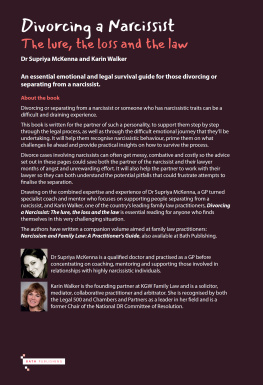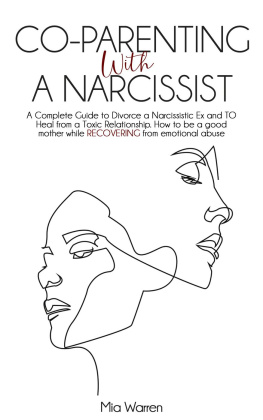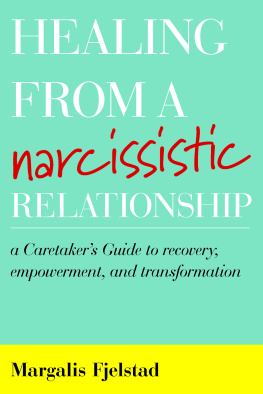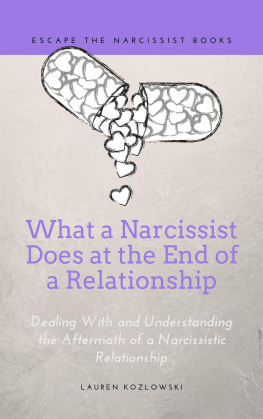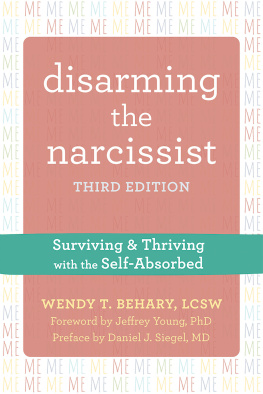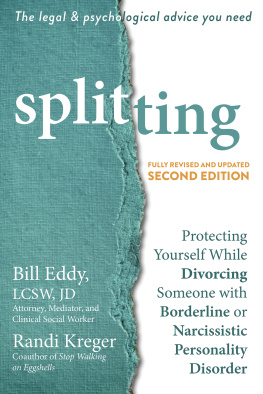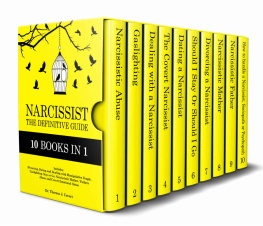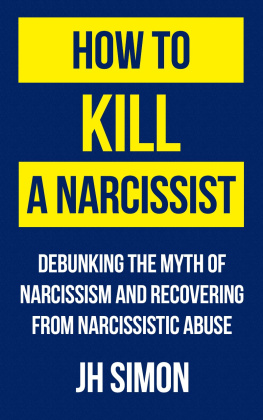All rights reserved. No part of this publication may be reproduced in any material form (including photocopying or storing it in any medium by electronic means and whether or not transiently or incidentally to some other use of this publication) without the written permission of the copyright holders except in accordance with the provisions of the Copyright, Designs and Patents Act 1988 or under the terms of a licence issued by the Copyright Licensing Agency (www.cla.co.uk). Applications for the copyright owners written permission to reproduce any part of this publication should be addressed to the publisher.
Supriya McKenna and Karin Walker assert their rights as set out in ss77 and 78 of the Copyright Designs and Patents Act 1988 to be identified as the authors of this work wherever it is published commercially and whenever any adaptation of this work is published or produced including any sound recordings or films made of or based upon this work.
The information presented in this work is accurate and current as at 1 February 2021 to the best knowledge of the authors. The authors and the publisher, however, make no guarantee as to, and assume no responsibility for, the correctness or sufficiency of such information or recommendation. The contents of this book are not intended as legal advice and should not be treated as such.
Dedications
Supriya
For Michelle Coleman, for 35 years of unparalleled hilarity and friendship.
Also for Querinthophorez
and
In loving memory of my mother, Shashi Kanta Nahan.
Karin
For my family and friends.
There is no greater joy, nor greater reward than to make a fundamental difference in someones life.
(Mary Rose McGeady)
One person can make a difference, and everyone should try.
(John F. Kennedy)
Also from Bath Publishing
Narcissism and Family Law
A Practitioner's Guide
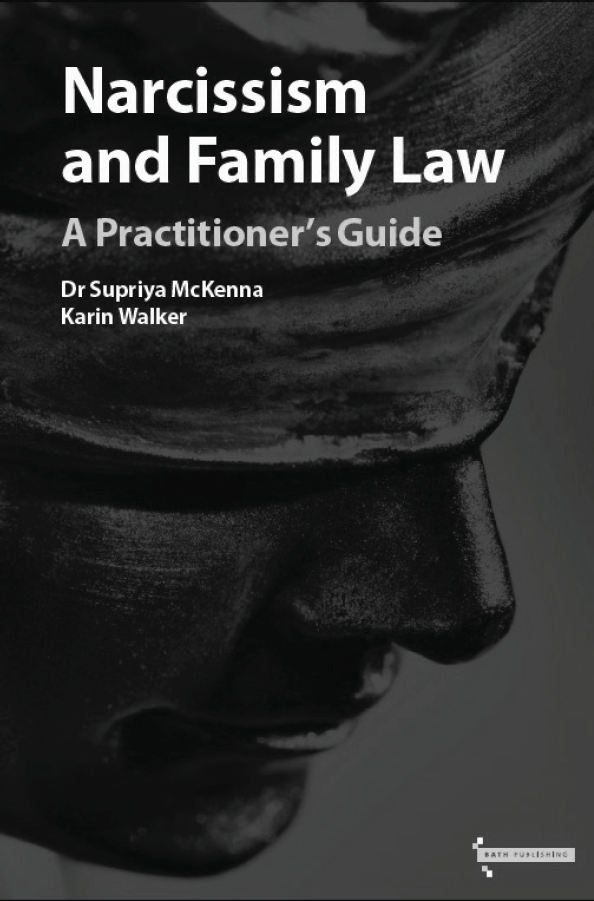
Order the companion guide for practitioners from bathpublishing.com/collections/family.
Narcissism and Family Law: A Practitioners Guide will help lawyers spot when they are dealing with a narcissist, whether they are their client or on the other side, and sets out innumerable practical insights and tips for how lawyers can moderate the effects of their behaviour. Divorce cases involving narcissists get messy, combative and costly so the advice set out in these pages could save the lawyer and their client months of angst and unrewarding effort and help to keep costs proportionate.
About the authors
Dr Supriya McKenna
Supriya started her career as a family doctor (GP) and magazine health writer in the UK. Having developed an interest in the field of narcissism, she now works as an educator, writer, coach and mentor in this area. She advises professionals dealing with clients who have been affected by narcissistic individuals, and also works directly with those who have fallen victim to narcissistic abuse, including in the area of separation and divorce. She has hands-on experience of the UK Family Court system, and is committed to raising awareness of personality disordered individuals in society at large, in order to minimise the adverse impact they can have on those around them, and to empower victims to break the generational chains of narcissistic abuse.
Supriya is a moderately accomplished singer, an amateur poet, a dog lover and proud mother. She adores the great British countryside, beautiful landscapes and excellent architecture.
Karin Walker
Karin is a solicitor, mediator, arbitrator (finance and children) and a collaborative practitioner. She founded KGW Family Law, based in Woking, UK, in 2012, where her objective remains to guide clients towards the best possible solution that places family first.
Karin is recognised by both the Legal 500 and Chambers and Partners as a leader in her field. She regularly writes on the subject of family law, speaks nationally and internationally on all aspects of family law and has made appearances in the national press and on television. She was an elected member of the Resolution National Committee and chair of the Resolution DR committee from 2014 to 2017.
Karin is married with two children and two grandchildren. She is a Liveryman of the Worshipful Company of Arbitrators and a Trustee of Guildford Shakespeare Company. She enjoys gardening, running, walking her dog and spending time with her family and friends.
Supriya and Karin have also co-written a companion book for legal practitioners Narcissism and Family Law: A Practitioners Guide.
Introduction
D ivorcing a narcissist may well be one of the most traumatic processes a person can experience. It is fraught with difficulties. At a time when you are dealing with the trauma of the breakdown of your relationship, and coming to terms with the sad realities of what that relationship really was, you are also being subjected to the most horrific, seemingly relentless, abuse at the hands of the narcissist through the divorce process itself.
The person you truly believed loved you, and who you loved (and perhaps still do), will turn on you with alarming venom. You will be left reeling in shock at how anyone, let alone someone with whom you shared a relationship and maybe even children, could be so cruel. You may be waiting for the punishment to end, for your narcissistic ex-partner to finally see the error of their ways, and become more reasonable. Perhaps even for them to become your friend, once the dust has settled. But there is little point trying to sugarcoat this you will be waiting indefinitely. In cases involving a narcissist, acceptance of the situation rather than hope that it will change, is the only way to move forward.
You may not have heard of Narcissistic Personality Disorder until recently. Perhaps a confused internet search, as a result of the odd behaviours or abuse you were enduring, first brought up the term. Maybe it was a friend, a therapist, or even your divorce lawyer who tentatively made the suggestion to you. If so, please understand that even just grappling to come to terms with the fact that your partner is a narcissist is a huge struggle. But doing it whilst separating or divorcing can be incomprehensibly difficult. And, frankly, it is made much worse by the fact that hardly anyone you know will believe what you are experiencing. Narcissists, by their very definition, are charming, affable and plausible; but these traits, although highly convincing to those who dont know them well, are merely skin deep.
If you are divorcing a narcissist, you will need to be prepared for what is to come. You will feel isolated. You will be shamed for your over the top reaction to the split. You will be blamed for the acrimony. You will be told by well meaning but ignorant people that you are just upset, that you should not label others, that there are always two sides to every story. You will be badmouthed by your narcissistic ex to all who will listen, including work colleagues, and maybe even your own children. You will be stunned at how low the narcissistic individual will stoop with baseless accusations and frank lies. You will lose friends, and even family, as people side with your narcissistic former partner, taken in by stories of victimhood, with you painted as the perpetrator. You may be stalked, bugged, or receive threats of financial and social ruin (threats which may turn out not to be empty). When you need support the most, you will be abandoned, by all but your truest friends. And, to add to the confusion, you may then be sucked back into the relationship as the narcissistic individual turns on the charm and lays themselves at your feet once more, with shallow promises of change and undying love. Sad to say, this is merely run of the mill in divorces involving narcissists.

